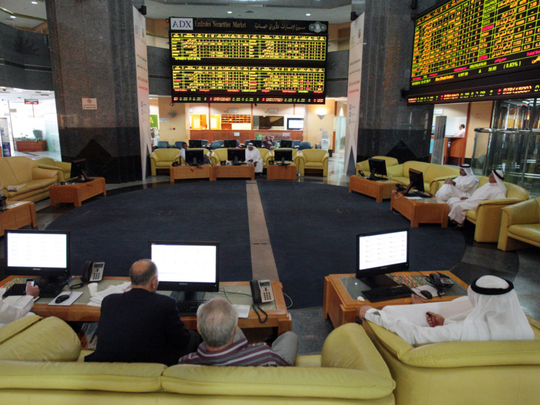
It’s been the best year in more than a decade for Gulf stocks thanks to booming oil prices. And investors expect further gains in 2022, driven by the soccer World Cup and new listings.
The region’s stocks are on track for their best annual performance since 2007, with a return of 36 per cent including dividends. That compares with 20 per cent for the MSCI World Index, which tracks developed world markets, and a 1.9 per cent loss for the MSCI Emerging Market index.
And Gulf equities have plenty of catalysts ahead, according to fund managers and strategists. Dubai has announced plans to list 10 state companies, including the main utility Dubai Electricity & Water Authority, in a bid to attract investors. World Cup-host Qatar, meanwhile, is spending billions of dollars on infrastructure and preparations for the event.
With the outlook for oil prices uncertain after this year’s near 50 per cent gain for Brent crude and with the risks surrounding the Covid pandemic, those initiatives could pick up some of the slack, supporting stocks in the six-member Gulf Cooperation Council, according to Mohammed Ali Yasin, chief strategy officer at Al Dhabi Capital Ltd.
“The outperformance of the main GCC markets will continue next year, although with a different momentum in selected markets,” said Yasin. He expects Dubai and Qatar-listed stocks to lead gains in 2022, followed by Saudi and Abu Dhabi.
Hasnain Malik, the Dubai-based head of research at Tellimer, sees other potential positive catalysts including the prospect of a renegotiated Iran nuclear deal, a wind-down of the war in Yemen, and deeper normalisation of ties with Israel. The improving geopolitical situation “should make for a healthy backdrop for the GCC”, he said.
The outlook for the region’s equities is not without risks: those include the Covid resurgence and its potential impact on travel and the World Cup, as well as rich equity valuations.
GCC markets - with the exception of Qatar - are expensive relative to other emerging-market oil exporters. The MSCI GCC Countries Combined Index is trading at about 16 times expected earnings in the next 12 months, a premium of 30 per cent to emerging-market stocks. This compares with an average premium of 13 per cent over the past 10 years.
But as Gulf governments carry on with their efforts to diversify their economies and output stays buoyant, earnings growth will remain strong, underpinning equity gains into 2022, said Divye Arora, a Dubai-based portfolio manager at Daman Investments.
Global emerging-market active funds continue to be largely underweight Middle Eastern equities, according to Morgan Stanley, which in November put Saudi stocks back on its buy list.
The markets’ small weighting in the MSCI Emerging Markets Index overall is a key factor holding back investors, according to Goldman Sachs Group Inc. Middle Eastern markets are “relatively new to the index in terms of inclusion, and will probably see money migrate over time,” said Caesar Maasry, head of the emerging markets cross-asset strategy team at Goldman Sachs.
Still, Gulf “governments are likely to enjoy elevated incomes in 2022,” said Akber Khan, senior director of asset management at Al Rayan Investment in Doha who oversees $1.3 billion dollars in assets. “The outlook for Gulf equities is unequivocally bright.”












